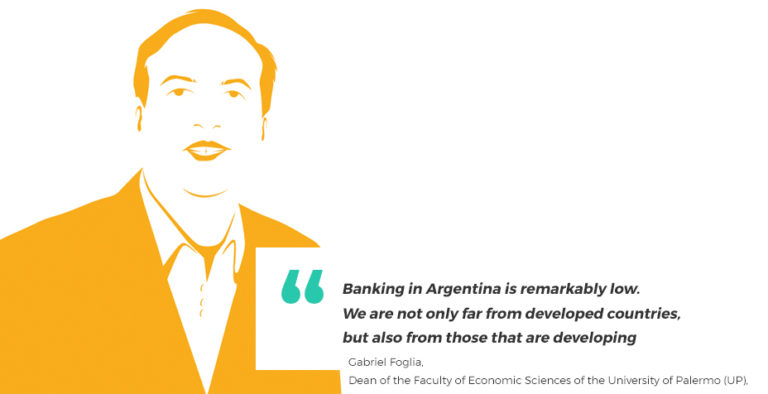52% of Argentinians are unbanked
As CashEssentials expands its reach to our Spanish-speaking readers, it is important to note the vital role that this tangible payment methodSee Payment instrument. More plays in Latin America and in Spain. In fact, Latin America is one of the most cash-intensive regions in the world where bank account ownership is only ahead of the Middle East and Sub-Saharan Africa (46%, 57% and 67% respectively). In Spain, cashMoney in physical form such as banknotes and coins. More usage remains high (accounting for 22.9% of all payments) thanks to the above-average access to ATMs (107 ATMs per 100,000 people) and a large rural population.
Of particular interest is Argentina where bank account ownership is not only low, but where financial exclusion actually grew by two percentage points (from 50% to 52%) since 2014 – contrary to its neighbors that have recorded growth in bank account ownership. Across the globe, financial exclusion declined from 39% to 33%, according to the World Bank.
What’s most alarming in Argentina is that the gap between the financially included and excluded populations has double in the observed three-year period (2014-2017). Also, if half of the country’s adult population does not own a bank account, these numbers are even higher when observed from an income perspective: 57% of the low income population is unbanked and 60% of youth between the ages of 18-29. When asked why they don’t own an account, 42% explained that it’s due to a lack of sufficient funds.
In terms of financial inclusionA process by which individuals and businesses can access appropriate, affordable, and timely financial products and services. These include banking, loan, equity, and insurance products. While it is recognised that not all individuals need or want financial services, the goal of financial inclusion is to remove all barriers, both supply side and demand side. Supply side barriers stem from financial institutions themselves. They often indicate poor financial infrastructure, and include lack of ne... More, Argentina is ahead only of Paraguay where 69% of the population is unbanked.
The reasons for such numbers are many and include a low rate of bank branches in remote areas, a history of economic crises which fosters a deep distrust in the banking system, and a desire to avoid taxation. Indeed, the national survey conducted by Voices! and UP, unveiled a serious lack of confidence in financial institutions by the Argentinian population where “73% admitted having “little or no” confidence in banks, a figure that climbs to 78% amongst the unbanked”.
